Registration currently closed. Registration for 2026 coming soon!
Winners 2025
The Alpha Trains European Railway Challenge 2025 took place from June 13th to 15th in Bad Schussenried. The teams delivered impressive performances and greatly impressed the jury, which resulted in following awards:
Supported by Alpha Trains

Grand Champion
- Team Eagle from the Georg Simon Ohm University of Applied Sciences in Nuremberg
Second prize
- Team FH2Rail from Aachen University of Applied Sciences
Third prize
- Team Loc.KA.engineering e.V. from KIT Karlsruhe
Entry Level Award
- Team Next Stop: Innovation from Ostfalia Wolfenbüttel
Stadler Rail Group Energy Recovery Challenge

- Team Eagle
VDB Traction Challenge

- Team Eagle
DMG Innovation Challenge

- Team FH2Rail
Technical Poster Challenge
- Team PUTrain from PUT Poznan
Further Challenges
- AutoStop Challenge: Team Eagle
- Ride Comfort Challenge: Team Eagle
- Design Challenge: Team FH2Rail
- Maintainability Challenge: Team FH2Rail
- Reliability Challenge: Team Loc.KA.engineering
The Alpha Trains European Railway Challenge is made possible by Alpha Trains, Stadler Rail Group, the VDB, and, last but not least, DMG, which also provided the start-up funding.
Team information
Team EAGLE (TH Nürnberg)
Team EAGLE (Erste Arbeitsgruppe zur Lokomotive Entwicklung Nürnberg, ≈ First working group on locomotive development Nuremberg) was founded at the beginning of 2022 and consists of 6 students of natural sciences and engineering, supported by 3 employees of the Institute of Automotive Engineering (IFZN) located at the Nuremberg University of Technology. Despite some problems, it enters the RWC 2023 already one year after its foundation with a complete, innovative locomotive, named after the historical model “ADLER” (Automated Driving Locomotive Efficient Railway).
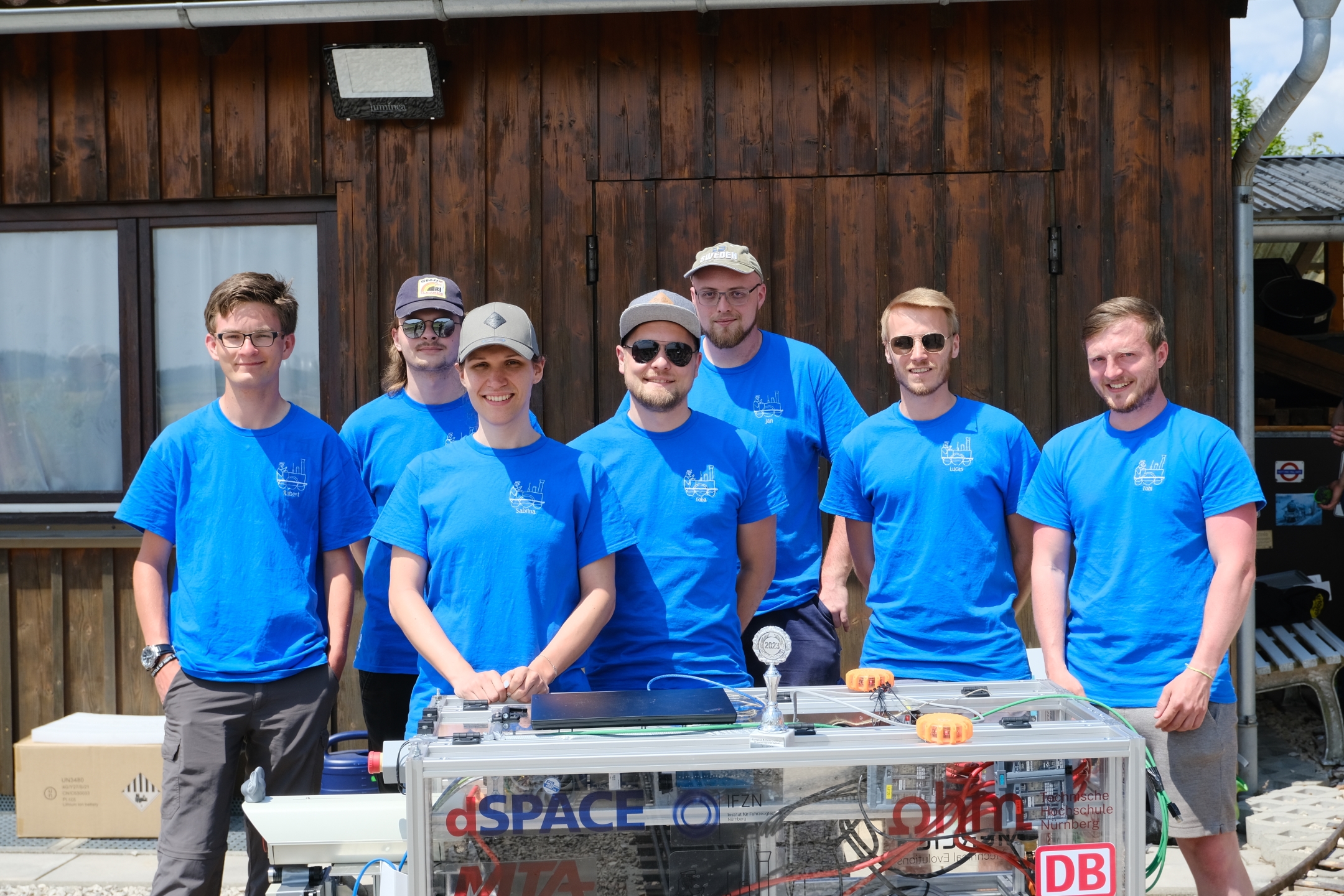
Team PUTrain (TU Poznan)
PUTrain is a Polish team of students from Poznań University of Technology, which has been building its own locomotives and competing in the Railway Challenge since 2018. Its projects focus on using non-obvious solutions, such as replacing steel parts with composite components, and reducing the bad impact on the environment by using renewable energy sources to power their vehicles.
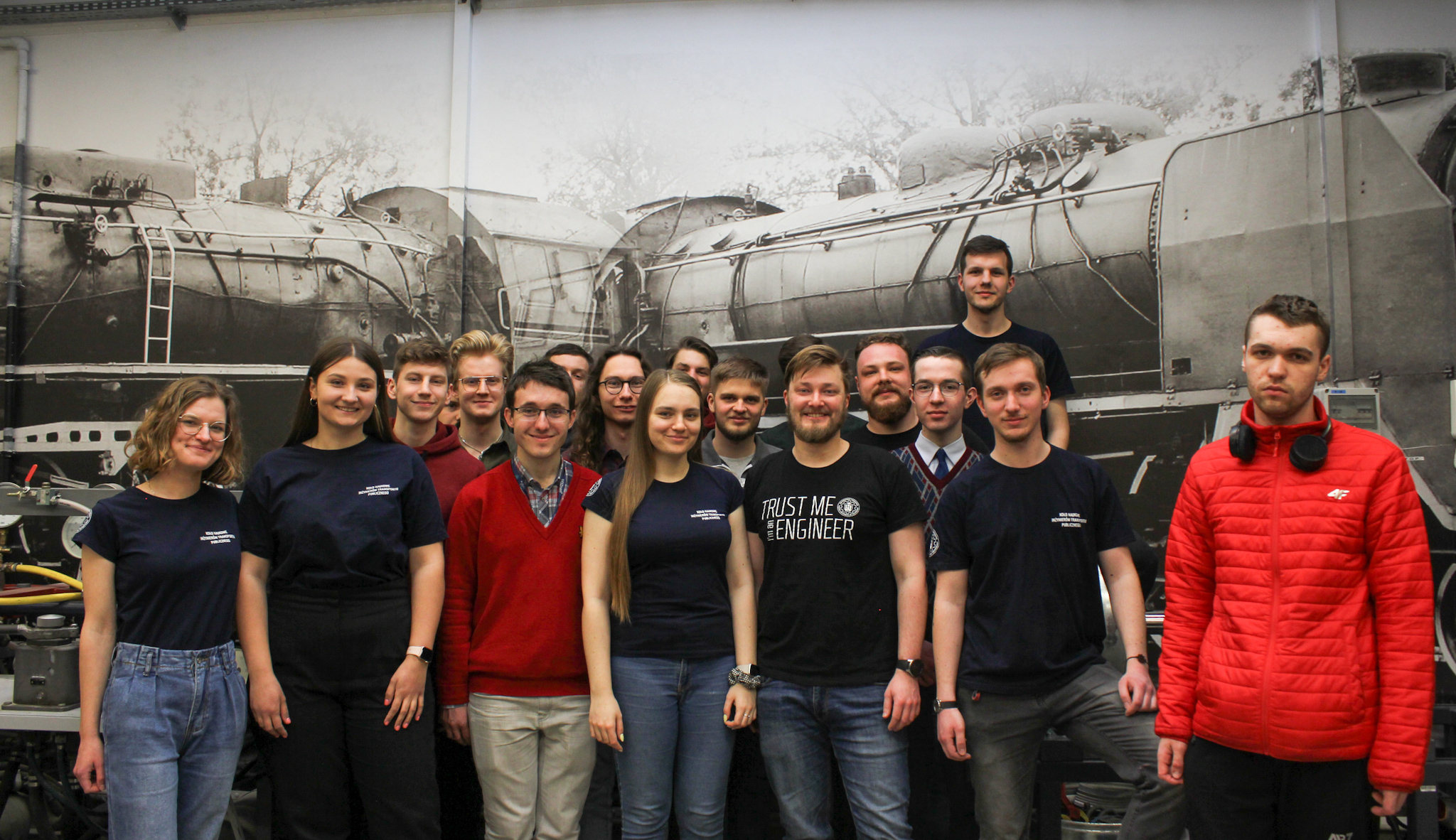
Team FH2Rail (FH Aachen)
After an encouraging first participation in the IMechE Railway Challenge in 2017 with their locomotive Emma, FH Aachen was able to win the overall competition in 2019 and 2022 with their loco Molly. The team of 2024 builds a new locomotive Carla, enabling the driver to sit in the locommootive. Basing on the record breaking NEPOMUK bogies, Carla combines high power with good efficiency of the traction system, thus providing a basis for small-scale innovations readily available to students.
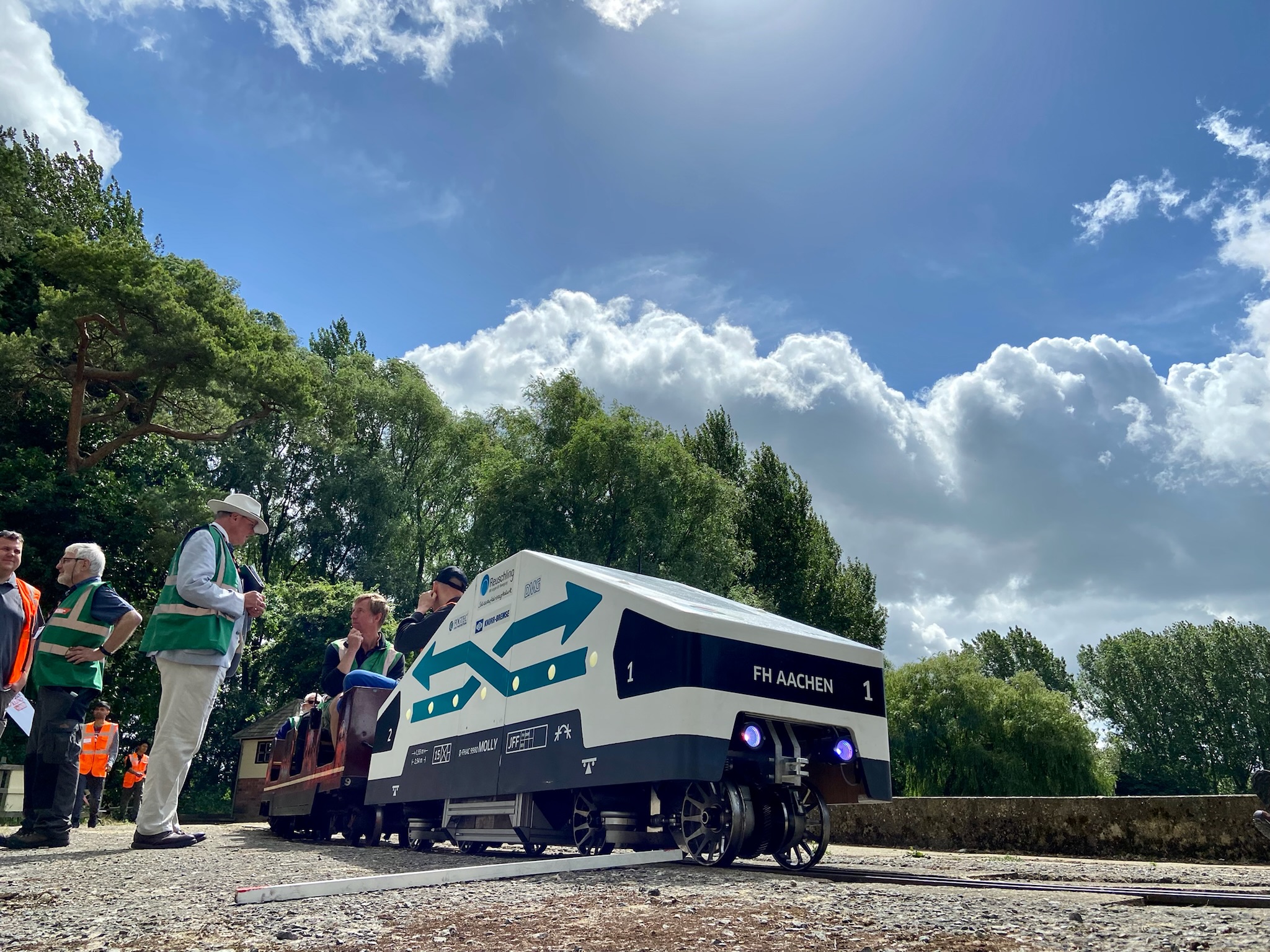
Team Loc.KA.engineering e.V. (Karlsruhe Institute of Technology (KIT))
Welcome to Loc.KA.engineering, an ever-evolving interdisciplinary student group dedicated to one primary objective: Pioneering innovative solutions to bring our railway system back on track. Being the first participants from Baden-Württemberg, we are proud to represent Karlsruhe, home of the well known Karlsruher Modell. Established in October 2023, we anticipate this year’s challenge as an opportunity to present our innovative concepts. As we gear up for the forthcoming challenge, scheduled for 2025, we look forward to unveiling the first generation of KARLA. Stay railed!
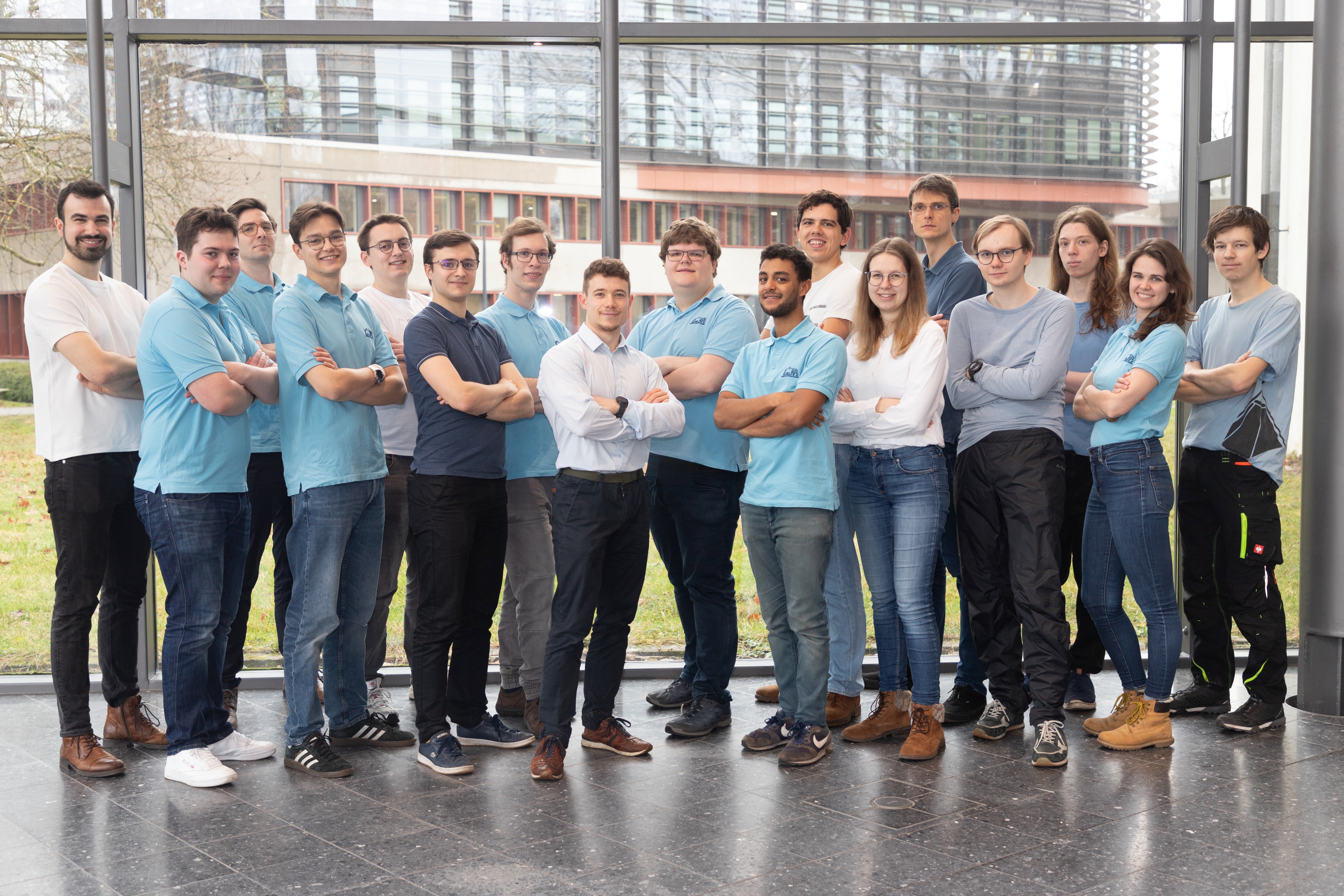
Team Next Stop: Innovation! (Ostfalia HaW)
“Next Stop: Innovation!” returns to the European Railway Challenge representing Ostfalia University of Applied Sciences. This year marks a significant milestone: after previously focusing on the CAD Challenge, the team is hitting the track for the first time with a fully realized locomotive. Our interdisciplinary group now unites students from Mechanical Engineering, Electrical Engineering, IT, and Business Administration. By combining diverse technical expertise, we have transformed our digital concepts into reality. We are eager to demonstrate our vehicle’s capabilities on the 10¼” gauge and compete alongside our European peers.
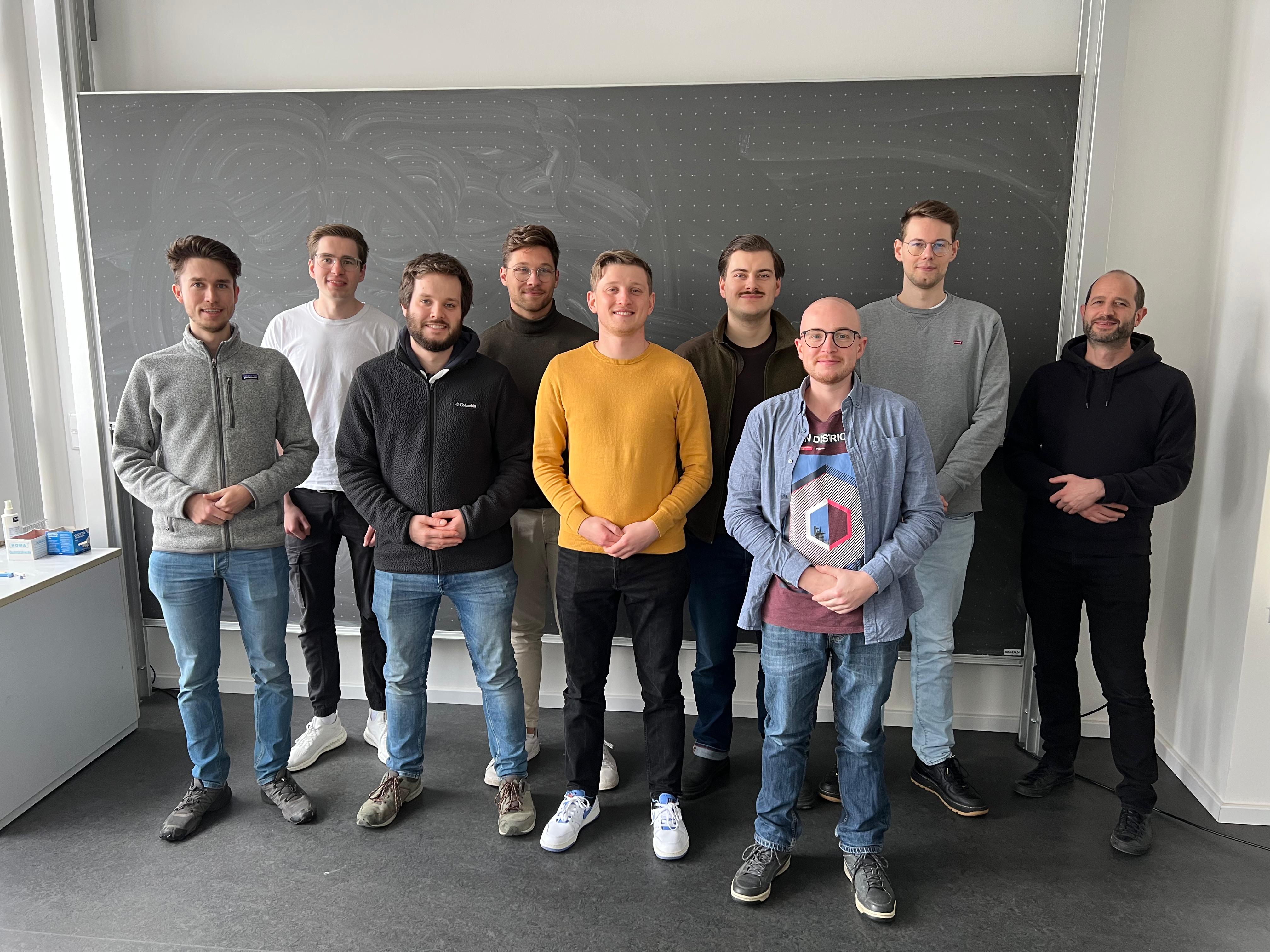
Why Railway Challenge?
Started in UK as IMechE Railway Challenge, it was quickly accepted as a unique means of educating you professionals to work in projects in the railway sector while at the same time conveying an innovative image to interested young people.
The aim of the teams is to develop, build and test a locomotive for 10,25" (260 mm) gauge railway. This gauge is well established in UK, however somewhat rare in Europe. The advantage of this gauge (and the approximate 1:5 scale) is the comparably low weight and cost of the vehicles as well as the ability to use components with relatively short lead times.
The development cycle is embedded in a 10 month project with milestones and documentation.
The Alpha Trains European Railway Challenge closely follows the specification and rules of the IMechE Railway Challenge, which enables teams to enter both competitions. With the European Challenge held some weeks prior to the IMechE Challenge, this provides opportunity to test the teams and the locomotives before entering the UK event.
The European Railway Challenge is made possible thanks to support from Alpha Trains Europa, Deutsche Maschinentechnische Gesellschaft, Stadler, Talbot Services, Verband der Bahnindustrie in Deutschland, TÜV SÜD and Gesellschaft für elektrische Zugausrüstung.

The competition is conceived as a series of individual challenges, both document based and on track. Notable examples for these challenges include
- Stadler Energy Recovery Challenge
- Ride Comfort Challenge
- VDB Traction Challenge
- Innovation Challenge
Points are assigned to all challenges and they can also be won individually. The team with the highest overall points becomes the “Grand Champion”.
Watch the video of IMechE below:
What to expect?
In order to enter the European Railway Challenge, you need to form a team of 5 to 15 individuals together with a supervisor. The team members shall be students, young professionals within their first two years after graduation or apprentices. It is possible to form a team from multiple organisations, e.g. a company partnering with a local university.
Your teams needs
- A motivation - in order to get the best out of these young people, ideally management backed
- A budget - depending on your needs and planning, a minimum of 10.000 € needs to be taken into account
- A workshop - the locomotive needs to be assembled
- An opportunity to test - might be anything from a couple metres of track to a dedicated railway track
In the 2025 challenge, five European teams took part:
- TH Nürnberg, Team EAGLE
- University of Poznan, Team PUTrain
- FH Aachen, Team FH2Rail
- KIT Karlsruhe, Team LocKA engineering e.V.
- as new entry Ostfalia Wolfenbüttel, Team Next Stop: Innovation
In the 2024 challenge, four European teams took part:
- TH Nürnberg
- University of Poznan, Team PUTrain
- FH Aachen, Team FH2Rail
- KIT Karlsruhe as new entry
The railway challenge 2026 is supported by great railway organisations. Confirmed so far:
-
Alpha Trains Europa - Main Event Sponsor
-
Stadler - Stadler Energy Recovery Challenge
The railway challenge 2025 was supported by great railway organisations:
-
Alpha Trains Europa - Main Event Sponsor
-
Stadler - Stadler Energy Recovery Challenge
-
Verband der Bahnindustrie in Deutschland (VDB) - VDB Traction Challenge
-
Deutsche Maschinentechnische Gesellschaft (DMG) - DMG Innovation Challenge
Sponsorship is available on three levels:
-
ERC Challenge Name (exklusive)
- Sold to Alpha Trains Europa
-
Single Challenge Name
- e.g. GigaCorp Energy Recovery Challenge
- Expected contribution 2500 € + VAT
-
Supporter
- e.g. supported by MegaCorp
- Expected contribution 1000 €, in-kind support possible
If you want so suppoprt the event, contact the organisers at railwaychallenge@fh-aachen.de - we look forward to hearing from you!
We thank all sponsors and supporters for their contribution to this unique gathering of young railway potentials!
When and where?
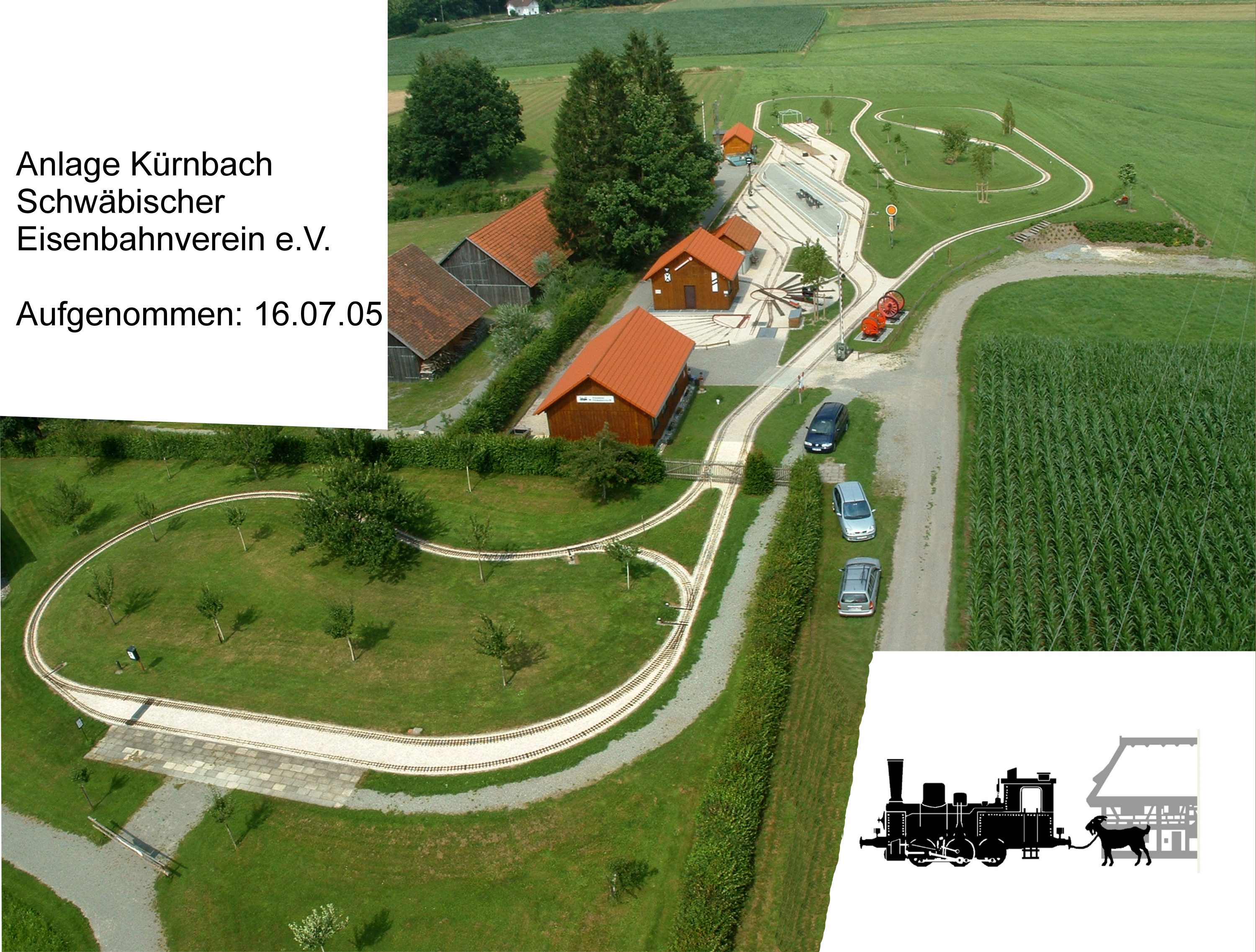
The European Railway Challenge is set to take place June 5 to 7 2026 in Bad Schussenried, Germany. The track may be available for test runs in the week before the Challenge, this must be agreed between the local railway and the teams.
How to join?
Register your team for this exiting challenge via mail: railwaychallenge@fh-aachen.de. Also feel free to contact Tim Tappert via this mail to clarify any questions! We look forward to welcome you in Bad Schussenried!
The team registration closes on November 30 2025, however concept presentation for early stage teams can still be considered.
If you want to support us as a sponsor, please contact Tim as well!
Technical details
Performance outline
The locomotive to be developed by the team runs on 10,25" tracks and has to fulfill (among others, see below) these requirements:
- Wheel set load <= 500 kg
- Vehicle mass <= 2000 kg
- Maximum velocity = 15 km/h
- Minimum train weight > 1800 kg
- Maximum track gradient 1.2%
The performance is documented by design calculations and testing documentation.

Technical requirements
The locomotive is built according to the technical specification as issued by the Institution of Mechanical Engineers, which can be downloaded here.
The rules of the individual challenges are also set to follow the IMechE rules as provided here.
Further documentation (e.g. structure gauge, wheelset drawings) can be found here.
Following the IMechE approach, ride-on locomotive operation is optional in 2024 and required in 2025. Please remember to provide sufficient and convincing safety analyses.